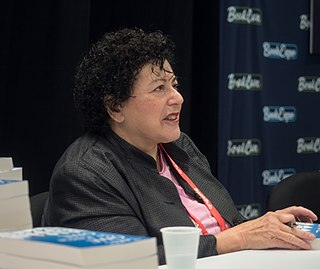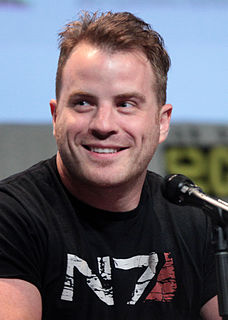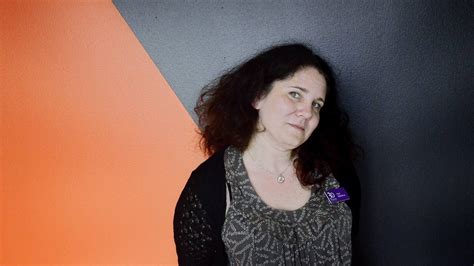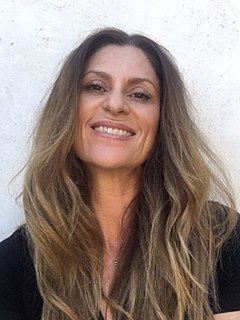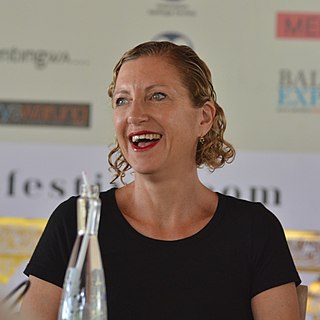A Quote by Carl Rogers
There are as many "real worlds" as there are people!
Quote Topics
Related Quotes
I had said that Le Guin's worlds were real because her people were so real, and he said yes, but the people were so real because they were the people the worlds would have produced. If you put Ged to grow up on Anarres or Shevek in Earthsea, they would be the same people, the backgrounds made the people, which of course you see all the time in mainstream fiction, but it's rare in SF.
There are only two worlds - your world, which is the real world, and other worlds, the fantasy. Worlds like this are worlds of the human imagination: their reality, or lack of reality, is not important. What is important is that they are there. these worlds provide an alternative. Provide an escape. Provide a threat. Provide a dream, and power; provide refuge, and pain. They give your world meaning. They do not exist; and thus they are all that matters.
I've always written towards movies that take place across two worlds. Most of the movies that I've worked on take place in two worlds, or sometimes three worlds, where you have a normal world and a fantasy world that mix and overlap. I never shy away from the series stuff in the real world. Big Fish is about mortality.
Many of us are trying to lead multiple lives: child, mother, wife, lover, star, giving small doses of oxygen to each and imploding under the weight of so many competing roles. The women I have written in Bombshells struggle - sometimes hilariously, sometimes tragically - to bridge the chasm between the wilderness of their inner worlds and the demands of their outer worlds. And humour, in the end, is our saviour.
Let me explain something to you. Look around here. How many people do you count? Sixty, eighty, eighty people? Greeks, Germans, Italians, French, Americans. Tourists from everywhere. Eating, drinking, talking, laughing. And from Bombay - Indians and Iranians and Afghans and Arabs and Africans. But how many of these people have real power, real destiny, real dynamic for their place, and their time, and the lives of thousand of people? I will tell you - four. Four people in this room with power, and the rest are like the rest of the people everywhere: powerless, sleepers in the dream.
You read, move your lips, figure out the words, and it's like you're in two places at the same time: you're sitting or lying with your legs curled up, your hand groping in the bowl, but you can see different worlds, far-off worlds that maybe never existed but still seem real. You run or sail or race in a sleigh--you're running away from someone, or you yourself have decided to attack--your heart thumps, life flies by, and it's wondrous: you can live as many different lives as there are books to read.





